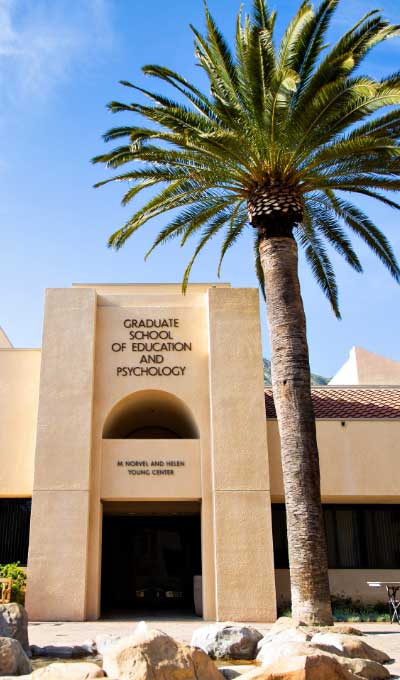Master of Arts in Teaching: The Master of Arts in Teaching (MAT) focuses primarily on the advancement of your teaching career. This is the degree most often pursued by people who want hands-on teaching experience and are seeking to work directly with students. The MAT focuses heavily on advanced coursework in a specific subject to hone your expertise. Coursework for the MAT also focuses on pedagogical theory and implementation. Essentially, the MAT will teach you how to be a teacher: methodology, stylistic approach, etc. Oftentimes, the Master of Arts in Teaching consists of hands-on experience that places you in a classroom as a student teacher to practice what you are learning.
Master of Arts in Teaching vs. Master in Education

Becoming a teacher in most states does not require a Master’s in Education or Master of Arts in Teaching, but many aspiring teachers still opt to pursue an advanced teaching degree. Pursuing a Master’s is a great way to potentially earn more money as a teacher, as well as establish yourself as a highly qualified expert.
There are many teachers who pursue their Master’s to further enhance their knowledge of teaching itself. These aspiring educators pursue either a Master of Arts in Teaching (MAT) or a Master’s in Education (M.Ed). When thinking of a Master’s in Teaching, many people use the terms Master of Arts in Teaching and Master’s in Education interchangeably, assuming the difference is subtle or nonexistent. The difference, however, is actually much larger than you might think, and knowing the difference between a Master of Arts in Teaching and a Master’s in Education can steer you in the direction that’s right for you.
Jumpstart your career in education, explore our sponsored teaching program:


Online MA in Teaching from Pepperdine University
The online Master of Arts in Teaching from Pepperdine University Graduate School of Education and Psychology prepares students to become leaders in a classroom and in their communities. The 11-month program combines weekly online classes with hands-on student-teaching placements to equip students with the technical and soft skills they need to become an effective PreK-12 teacher.
- No GRE, GMAT, or other standardized tests required to apply.
- Choose from two teaching credential specializations: Elementary Teaching (Multiple Subject) or Secondary Teaching (Single Subject).
- Application fee waivers are available.
- Complete the program in 11 months, full time.
SPONSORED
What’s the Difference Between a MAT Degree and a ME Degree?
The difference between an MAT and ME degree is based in the learning objectives and career aspirations of the students who enroll in the programs. Typically, those working towards a MAT degree are trying to advance their careers in teaching and gain practical expertise in lesson instruction and working with children. Students of ME programs, on the other hand, are usually much more focused on advancing their careers outside of the classroom into fields such as administration and curriculum design.
Before we dive in, take a look at a table that illustrates some of the key ways that an MAT degree and an ME degree are different:
| Degree Components | MAT | ME |
|---|---|---|
Average Units/Credits | 42 | 36 |
Time to Complete | 2 years | 2 years |
Program Focus | Practical skills and subject-specific information | Understanding and critically evaluating the practice of education |
Teaching Experience? | No | Yes |
Example Coursework | History and Philosophy of Education, Learner Differences | Educational Leadership, Curriculum Design and Development |
Common Careers | High School Teacher Special Education Teacher Middle School Teacher Elementary School Teacher | Adult Literacy Teacher Principal Instructional Coordinator Reading Specialist |
MAT Degree vs. ME Degree: Overview
Master’s in Education: A Master’s in Education (M.Ed) is an advanced degree geared more towards moving beyond the classroom and into the education system itself. Certified teachers and aspiring teachers can pursue an M.Ed and still remain in the classroom, but the Master’s in Education allows for a broader range within the educational sphere. Often, those who pursue ME degrees have ambitions to influence policies and procedures within schools to make a difference in the lives of students. ME degree programs work to ensure that degree seekers understand the systems and mechanisms behind the education system – as well as the best ways to collaborate with peers to influence change.
MAT Degree vs ME Degree: Concentration Areas
MAT Concetrations and Specializations: A typical MAT degree program will feature various specializations that focus in on a specific branch or subject of teaching. Below are a few examples of concentration areas a MAT program might feature:
- Early Childhood Education: MAT programs that focus on early childhood and childhood education are typically designed for teachers who want to work with students from ages 0 to 4, with some programs including certifications for kindergarten and first grade.
- Primary/Elementary Education: Elementary education specific MAT programs equip teachers with the skills and methods needed to work in K-6 classrooms. Foundational coursework in areas like learning styles and teaching methods are emphasized with additional electives typically rounding out the curriculum.
- Secondary Education: For the most part, MAT programs with a specialization in secondary education set up students with certifications to teach in grades 7-12. The coursework is similar to that of any other specialization but takes a deeper look at issues such as mental health and cultural diversity in schools.
- Special Education: MAT degree programs that focus on special education take an enhanced look at teaching students with disabilities. This might include discussions of teaching methods designed for specific student groups and interactive lessons on understanding various disabilities.
ME Concentrations and Specializations: ME degree programs also will usually offer specializations designed to allow students to gain a deeper understanding of topics within the field of education. Some example ME degree specializations are outlined below:
- Curriculum and Instruction: This major focuses on teaching and learning, and is ideal for people who want to begin their teaching career or advance their career with excellent preparation in educational theory. An M.Ed of Curriculum and Instruction focuses primarily on teaching, public service, and scholarship. You will also gain a better understanding of curriculum development, teacher leadership, and human development.
- Counselor Education: This major is right for you if you are seeking to become a guidance counselor or a school’s mental health professional. Mental health, however, is an entirely different field in and of itself, so if you’re interested in becoming a mental health counselor, you should find out about your specific state’s licensure requirements.
- Educational Administration: This major will prepare you to become a principal or a higher level school administrator. Coursework in this major is built around educational law, building and community issues, and faculty leadership. Another degree that takes an in-depth look at best practices in education administration and educational leadership is a doctorate of education (also referred to as an EdD).


Online MA in Teaching from Pepperdine University
The online Master of Arts in Teaching from Pepperdine University Graduate School of Education and Psychology prepares students to become leaders in a classroom and in their communities. The 11-month program combines weekly online classes with hands-on student-teaching placements to equip students with the technical and soft skills they need to become an effective PreK-12 teacher.
- No GRE, GMAT, or other standardized tests required to apply.
- Choose from two teaching credential specializations: Elementary Teaching (Multiple Subject) or Secondary Teaching (Single Subject).
- Application fee waivers are available.
- Complete the program in 11 months, full time.
SPONSORED
Final Thoughts
Whether or not you want to impact the education system by working at a high-level administrative level with a Master’s in Education, or on a more fundamental level in the classroom with a Master of Arts in Teaching, any program can greatly benefit your teaching career. Pursuing an advanced degree makes you more appealing to your employer, and can even entitle you to greater benefits. You will also have a far-reaching impact on society by ensuring you are fully prepared and qualified to teach, allowing you to inspire and influence your students in ways that will stay with them for the rest of their lives.
Read more about:
